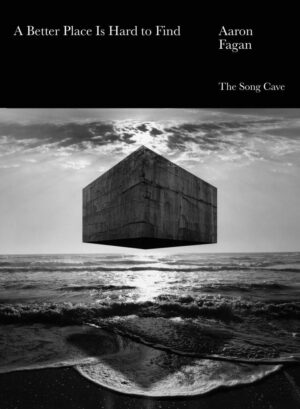In Their Own Words
Aaron Fagan on “Three Kinds of Everything”

Three Kinds of Everything
Dawn approaches and abundances stampede,
Our bodies make love as we weep and dream
With an effulgent smell of death engulfing us,
We lie to each other about the way we feel,
Bend time, curve space, to discover, in tandem,
What love is only by what is left of love when
Love returns, whether by death or dismantlement,
To begin, inch by inch, through suffering and song,
As though this unrehearsed, yet familiar, way leads
To the place breath insists us on to, melting edges
Off the fact we have come so far yet just begun,
What happens stalls out within the fear we have
Seen the truth of an instance a little too clearly
And now we are living only for emergencies.
From A Better Place Is Hard to Find (The Song Cave, 2020). All rights reserved. Reprinted with the permission of The Song Cave.
On "Three Kinds of Everything"
To me, an aubade is a form of dirge, both a morning song and a mourning song. The new day, as we discover, both is and is not new. It’s infused, if not haunted, with what’s come before and what’s to come. Crowded with prior will bleeding possibility, the moment proves itself to be recursive. And any attempt to render it in language fails to provide a satisfactory simulation. That is all to say we try to get it all down right, but we get it all, or mostly, wrong. Life obviously resists taxonomy. Life presents its infinite series of complications. And in facing off with those challenges, the same mechanism that inspires wonder also leaves us vulnerable to the attention economy, which quite literally conspires to keep our life force suspended in a chronic state of alert distraction—like a puzzle we simultaneously make and solve. In a process called “sentiment analysis” our language is mined for evidence of fight, flight, or freeze by psychologists-cum-data-scientists to be measured in positive, negative, or neutral polarities—as if these three kinds of everything satisfy any condition with clarity. The poem—a one-sentence sonnet that decomposes as it’s composed—in its totality of attempts to arrest, monumentalize, and perfect reality—exposes the essential distortion of the romantic impulse to materialize our imagination.



